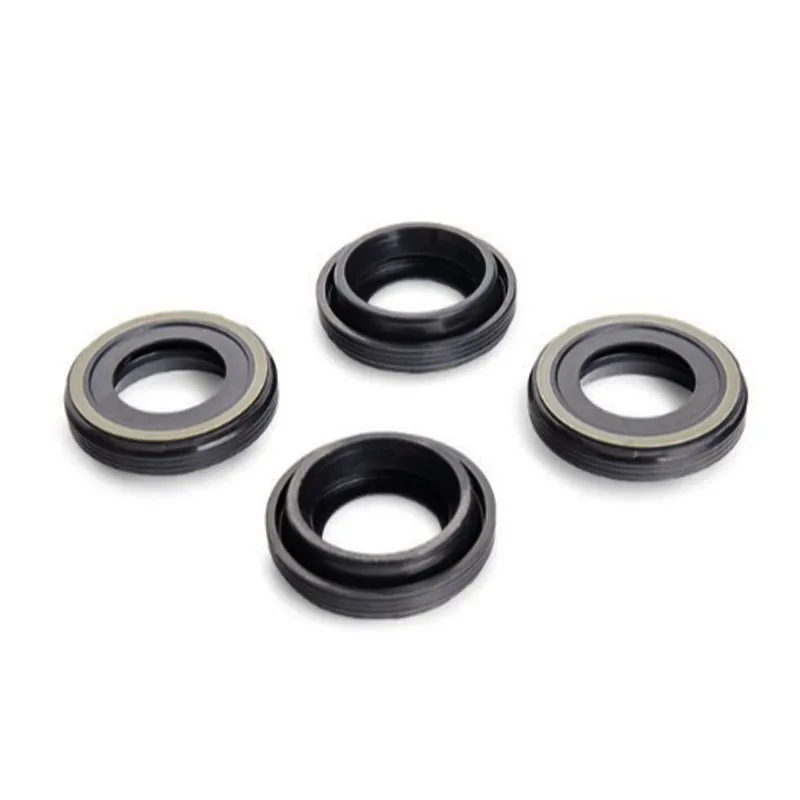Understanding Rotary Shaft Oil Seals and Their Importance in Mechanical Applications
Understanding Rotary Shaft Oil Seals Importance and Functionality
Rotary shaft oil seals play a critical role in various machinery and automotive components by preventing leakage of lubricants and other fluids. These mechanical devices are primarily utilized to retain oil in rotating shafts, ensuring the smooth operation and longevity of equipment. In this article, we will explore the types, functions, and significance of rotary shaft oil seals in modern applications.
At their core, rotary shaft oil seals are designed to create a barrier between moving and stationary parts. They are typically made from elastomers or thermoplastic materials, which provide flexibility and resilience. The most common materials used include nitrile rubber (NBR), fluorocarbon (FKM), and polyurethane. Each material has its unique properties that make it suitable for different applications, such as temperature resistance, chemical compatibility, and wear resistance.
The primary function of an oil seal is to prevent fluid leakage, which can lead to decreased efficiency, increased wear and tear, and potential equipment malfunction. By sealing the gap between the rotating shaft and the housing, these seals help maintain the lubricant within the mechanism, reducing friction and heat generation. This is especially crucial in high-speed and high-load applications, where the risk of failure becomes significantly higher without proper sealing.
rotary shaft oil seals

Rotary shaft oil seals come in different designs and configurations, depending on the specific requirements of the application. The most common types include single-lip seals, double-lip seals, and spring-loaded seals. Single-lip seals are the simplest type, providing basic leakage protection. On the other hand, double-lip seals offer enhanced sealing capabilities, making them ideal for challenging environments. Spring-loaded seals incorporate a spring mechanism that maintains contact with the shaft, providing a more reliable seal under varying conditions.
The significance of rotary shaft oil seals extends beyond just leakage prevention. Properly functioning seals contribute to the overall efficiency of machinery by minimizing energy losses due to friction. This, in turn, leads to reduced operational costs and improved performance. Furthermore, in automotive applications, effective seals help maintain optimal engine performance and can prevent costly repairs due to oil leaks.
In summary, rotary shaft oil seals are indispensable components in various mechanical systems. They ensure the effective containment of lubricants, thereby enhancing the reliability and efficiency of machinery and automotive systems. Understanding the different types and functions of these seals can help industries choose the right seal for their specific needs, ultimately leading to better performance and longevity of their equipment. Whether in industrial machinery or vehicles, the importance of rotary shaft oil seals cannot be overstated, making them a critical focus in engineering and maintenance practices.
-
Simplifying Oil Changes: A Comprehensive Guide to Oil Drain Plugs and Their Variants
News Aug.04,2025
-
Mastering Oil Drain Maintenance: Solutions for Stripped, Worn, and Upgraded Oil Plugs
News Aug.04,2025
-
Fixing Oil Pan Plug Issues: Leaks, Stripped Nuts, and the Right Replacement Solutions
News Aug.04,2025
-
Everything You Need to Know About Oil Drain Plugs: Sizes, Fixes, and Upgrades
News Aug.04,2025
-
Choosing the Right Oil Drain Plug: A Guide to Sizes, Materials, and Drain Innovations
News Aug.04,2025
-
A Complete Guide to Automotive Drain Plugs: Types, Problems, and Innovative Solutions
News Aug.04,2025
-
The Ultimate Guide to Car Repair Kits: Tools and Essentials Every Driver Should Own
News Aug.01,2025
Products categories















